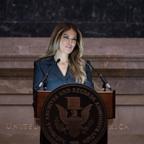U.S., Swiss ask for delay in UBS secrecy case
— -- Justice Department prosecutors and UBS Sunday asked a federal judge to postpone an internationally watched trial scheduled for Monday and give them more time to seek a settlement of Washington demands that the Swiss banking giant turn over the names of 52,000 wealthy American clients suspected of tax evasion.
Saying they want "to continue their discussions seeking a resolution of this matter," the joint motion asked U.S. District Judge Alan Gold in Miami to reschedule the evidentiary hearing for Aug. 3 if an agreement is not reached. The filing marked the first time the two sides publicly acknowledged settlement negotiations.
There was no immediate ruling Sunday by Gold. Federal courts, however, typically grant adjournments in civil cases to enable the involved parties to pursue settlement talks.
Both sides in the case and the Swiss government declined further comment. But a Justice Department news release said both sides "have agreed that any alternative resolution reached would necessarily include a provision requiring UBS to provide the Internal Revenue Service information on a significant number of individuals with UBS accounts."
Federal prosecutors simultaneously increased pressure on UBS with a separate court filing that raised the prospect of stiff financial penalties or other action against the bank if it continues to fight a summons seeking the client data.
"If the Court orders compliance with the summons, and if UBS defies that order, it is the intention of the United States to ask the Court to take appropriate steps to enforce its order and vindicate its authority. This would include asking the Court to hold UBS in contempt and to impose monetary sanctions sufficient to bring UBS into compliance," said a legal memo filed by federal prosecutors.
The memo warned that non-compliance could violate the $780 million February settlement in which the Justice Department deferred prosecution of UBS for the bank's admission it secretly and systematically helped American clients set up offshore accounts that weren't disclosed to the IRS.




